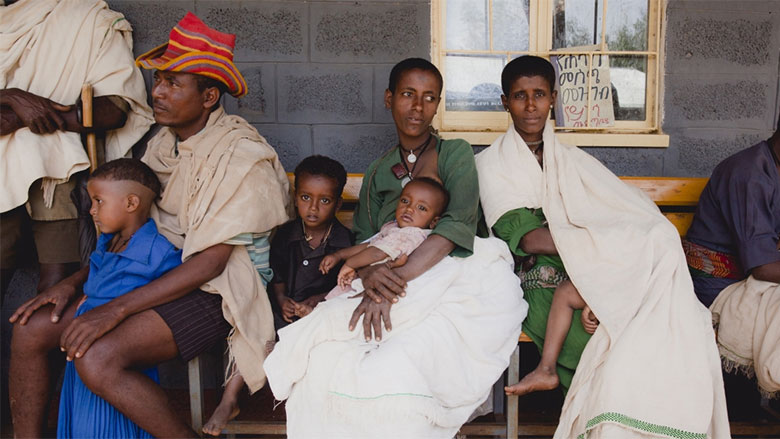ADDIS ABABA, December 28, 2017—Although Ethiopia has succeeded at improving the delivery of basic services to its rapidly growing population—and met a number of universal development markers for health and welfare—it still has a long way to restructuring its economy and improving public education. Agriculture, for example, is still the largest source of employment for young Ethiopians and, in rural areas, the proportion of children not completing primary school is 84 percent.
Regional disparities exist in access to decent quality services, too, with several parts of the country lagging behind the national average. Even more marked are differences between the availability or adequacy of services, such as health clinics and schools, across the regions’ woredas (districts), as well as between their urban and rural areas.
A good 70 million Ethiopians are under the age of 30 (of a total population of about 100 million); they also form half of the country’s labor force (age 15–29). Many of them suffer ill health and, as a result of their poor education, have low skills.
Ensuring more equitable growth, better access to quality basic social services for them is critical.
Pro-poor public expenditure and local accountability systems reduce inequality
For its Second Growth and Transformation Plan (GTP2), the Government of Ethiopia has identified access to basic services as one of the three main drivers of poverty reduction, as well as an element critical to achieving Ethiopia’s vision of becoming a middle-income country by 2025. Improving access to basic services is also in line with the World Bank’s new Country Partnership Framework for Ethiopia.
The Bank’s Equitable Services (ESPES) Program builds on its precursor, the Promoting Basic Services Program, and uses the Inter-Governmental Fiscal Transfer system, or block grants, to support Ethiopia’s decentralized system of governance and promote the flow of information and resources between different levels of government.
Woreda block grants correlate to poverty levels—the higher the poverty rate, the more money per capita is transferred to that woreda. Given that a higher poverty rate implies a lower level of basic service sector outcomes, spending at the woreda level also increases the outcomes of most basic service sector indicators.
ESPES therefore allows the government to tackle regional inequalities and narrow the gap between rich and poor by financing parts of the recurrent costs of woreda-level basic services—including salaries for teachers, health workers, and agricultural extension workers—in the poorest performing districts, and in the bottom 20 percent income groups.
Reliable district-level basic services mean better development outcomes
Since its inception, the ESPES program has improved equitable access to basic services in nearly 1,000 districts nationwide. Bolstered by inputs from sector spending and other Bank projects, it has enabled a 23 percent increase in the net enrollment rate of primary school students. By facilitating the deployment of more primary school teachers, it has also increased students’ access to teaching staff.
Similarly, an increase in better-qualified health extension workers has given communities better access to essential health services, resulting in a 28 percent decrease in child mortality since 2006. Agricultural extension workers, who convey crucial information about improvements in farming, livestock care, and the environment, are also more readily available in ESPES-financed woredas. A full 17 percent increase in public access to improved water supply since 2006 can be attributed to the greater availability of staff who coordinate community water-user groups.
ESPES also supports transparency measures, like posting budgets, and helps improve public finance management with timely reporting and auditing; it helps improve the reporting of results across all the woredas; and, in at least 232 districts, it helps citizens to budget for education and discuss it.
These measures will have a positive and lasting impact on managing and delivering basic services.
Additional Financing to strengthen citizens’ engagement and ensure sustainability
The World Bank has approved the Government of Ethiopia’s request for additional financing to fund block grants for basic social services, such as public health care, education, agriculture, rural roads, water, and sanitation. In addition to scaling up existing activities, the funds will help promote proper nutrition, citizen engagement, social and environmental safeguards, and fiduciary management in the woredas.
As sustainability depends not only on financing but on the quality and capacity of the institutional mechanisms underpinning service delivery, capacity building will also become a major area of focus to ensure that any advances made become fully institutionalized.

